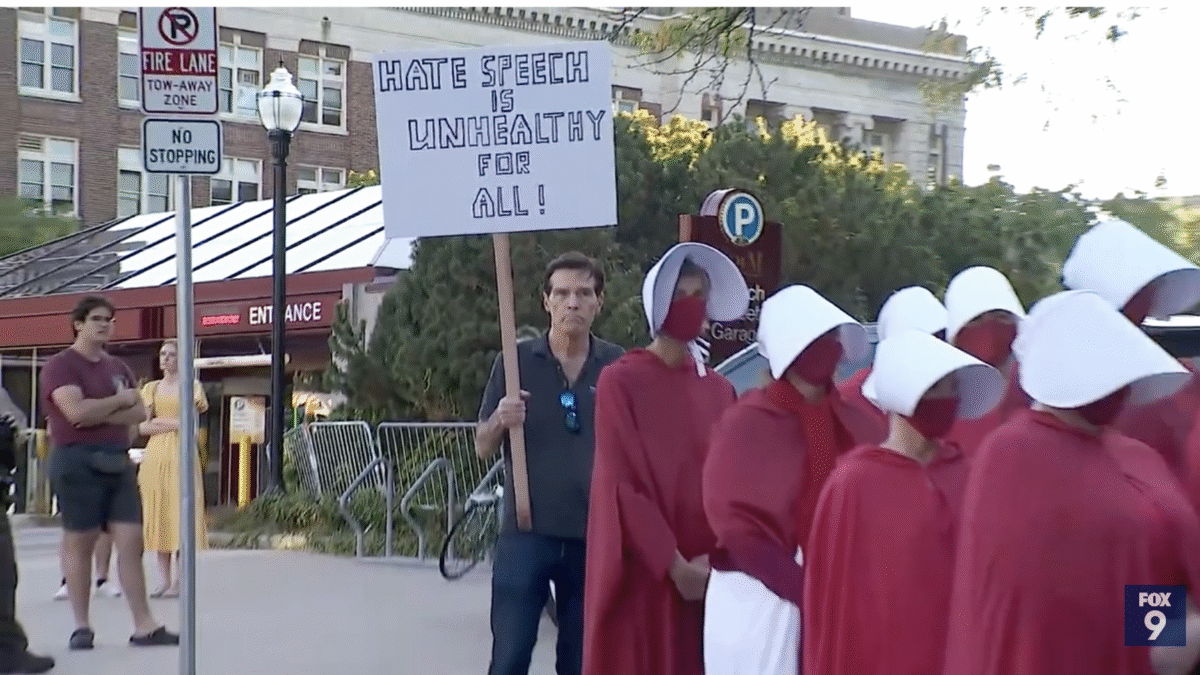
According to an Education Week analysis, by mid-summer more than half of states had taken some measure to regulate teaching about race in public schools. Although often implicit, the rise of critical race theory has been the guiding concern.
Yet the laws differ significantly in purpose and scope. Idaho’s statute (H.B. 377), for example, only prohibits compelled speech, not the content of instruction. As long as students are not coerced to accept its ideas as true, nothing prevents the use of critical race theory in Idaho’s classrooms. By contrast, Texas’s and Tennessee’s laws (H.B. 3979 and S.B. 623, respectively) are directly concerned with keeping certain ideas about race (and sex) out of K-12 education.
More recently there has been activity at the federal level. Republican Sen. Josh Hawley of Missouri has proposed the “Love America Act,” which would deny federal funds to any school teaching that America’s founding documents are the product of racism or white supremacy. Likewise, an amendment from Republican Sen. Tom Cotton of Arkansas to the budget reconciliation package could bar federal funds to schools that promote critical race theory.
Critical Race Theory: Boogeyman or Real Threat?
Responses to this trend have been as diverse as the trend itself. In the main, however, defenders of critical race theory contend that opponents have made a “boogeyman” out of scholarly literature they don’t understand. Meanwhile, these opponents of “CRT-inspired” curricula are less concerned with academic precision than with shielding public education from what Columbia University professor John McWhorter calls a “neo-racist” religion.
There are, no doubt, misconceptions on both sides. Yet there is a marked tendency among critics to overstate the intent and scope of “anti-CRT” legislation.
Take for example a recent New York Times op-ed co-authored by David French, Kmele Foster, Jason Stanley, and Thomas Chatterton Williams: “We Disagree on a Lot of Things. Except the Danger of Anti-Critical Race Theory Laws.” Essentially, they argue, the recent spate of legislation undermines the liberal education necessary to citizens of free societies.
Consider: “The laws differ in some respects but generally agree on blocking any teaching that would lead students to feel discomfort, guilt or anguish because of one’s race or ancestry.” This is a very broad prohibition indeed. One could imagine many things in history that might make someone uneasy about the misdeeds of his ancestors.
David French et al. Misread the Law
In reality, however, the relevant statutory language bars the “concept” that “an individual should feel discomfort, guilt, anguish, or any other form of psychological distress on account of the individual’s race or sex.” (This language appears identically in the Texas and Tennessee statutes.) The prohibition, in other words, is against telling kids they should feel discomfort, guilt, or anguish because of their race – not the pundits’ much broader suggestion that whatever might induce a child to feel such discomfort is verboten.
Moreover, you may notice the use of “ancestry” does not appear in the actual statutory text. Indeed, it appears nowhere in any of the laws the Times op-ed mentions. Here again, it’s quite plausible that white southerners descended from slave owners or proponents of Jim Crow might feel significant discomfort in studying the history of the American South based on their particular lineage. The Times coauthors want us to believe lawmakers are out to assuage all such uneasiness.
Yet, given the significant differences between race and ancestry, the legislators have no discernable interest in preventing any discomfort of the kind. The prohibition targets one thing: teaching that students should feel guilty simply by virtue of their race or sex.
The coauthors go further. The laws also prohibit, they claim, “teaching that subsequent generations have any kind of historical responsibility for actions of previous generations.” This, too, seems like a carelessly broad prohibition, freighted with a reactionary agenda. No historical responsibility of any kind?
But here again, the actual statutory language is much more modest. It prohibits teaching that “[a]n individual, by virtue of the individual’s race or sex, bears responsibility for actions committed in the past by other members of the same race or sex.” (Again, the Texas and Tennessee language is identical.)
Reckoning with History Responsibly and Gracefully
There is an obvious world of difference here. The laws specifically target race-based guilt, while saying nothing about other forms of generational culpability. I have already mentioned ancestral guilt, but even more significant is the question of communal responsibility for American slavery and racism that implicates all Americans.
Abraham Lincoln himself highlighted national guilt in his second inaugural address by suggesting God had given “to both North and South this terrible war as the woe due to those by whom the offense came.” No doubt Lincoln was tempted to hang blame for the war solely on the South. Instead he looked generational, national responsibility square in the eye. Pace the pundits, there is absolutely no indication that Texas and Tennessee legislators intend for the school children of their respective states to do otherwise.
In all, these laws simply do not represent — explicitly or implicitly — a “demand,” as the Times writers aver, “to avoid discomfort.” Quite the contrary. For example, the Texas statute mandates the teaching of “the history of white supremacy…and the ways in which it is morally wrong” as “essential knowledge.” It requires that the writings of Ona Judge be studied alongside those of George Washington, Sally Hemings alongside Thomas Jefferson, and so forth.
This is hardly a triumphalist exercise intended to lull students into civic contentment. It is, however, an attempt to ensure K-12 civic education does not become overrun by ideas and agendas at odds with fundamental American ideals.
Despite the recent vogue of neo-racism, telling kids they are inherently superior, inferior, guilty, blameless, virtuous, or vicious solely on the basis of their race is orthogonal to bedrock American ideals — the self-evident truths that all men are created equal and endowed by their creator with natural, unalienable rights.









